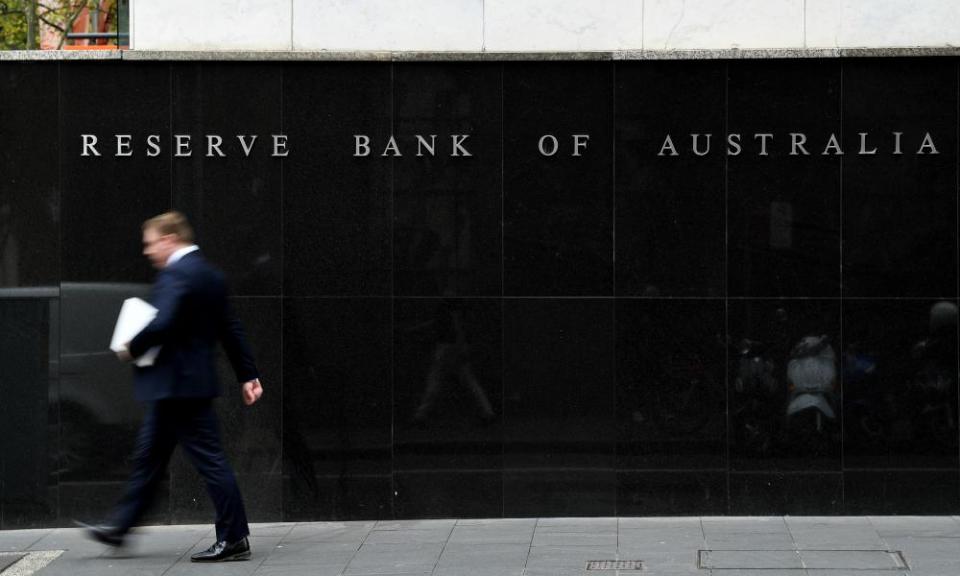With borrowing effectively free, why be scared of government debt?

Earlier this week, the Australian government took out a 12-year loan worth $1.2bn dollars. That actually isn’t unusual – the government often borrows that amount in the form of a bond issue. What was unusual was the interest rate it is paying – just 0.8185%.
Think on that – given the current inflation rate is around 1.8%, the government has borrowed $1.2bn dollars at an interest rate that is more than one percentage point below inflation.
That is effectively borrowing $1.2bn for free.
It highlights just how absurd is the economic debate in this country.
The US economist Paul Krugman recently noted that “for a long period of time elites thought that debt was the greatest threat to the US economy. Now I think we’ve largely come around to the correct view, which is that debt is just not a serious problem for the United States currently”.
Related: Households and businesses are woefully unready to keep Australia's economy afloat | Greg Jericho
Neither is it a problem for Australia, and yet our political debate remains stuck in a world where we still act like the government budget is equivalent to that of a household or company.
A new paper by progressive think tank The Australia Institute, “The Budget Surplus Objective: An example of how economics is broken” highlights the folly and cost of this fear of government debt.
It’s author, David Richardson, notes that given Australia’s nominal GDP is expected to grow at around 4.5%, if government borrowing pays lower interest than that (as is currently the case) debt levels will fall over time. This is because the economy is growing much faster than is the interest on the debt.
It means, to quote Larry Summers, the former chief economist of the World Bank, that “public investment is essentially costless – the classic free lunch”.
Consider that back when the Howard government lost the 2007 election, the interest rate for a 10-year government bond was 6.03%; now it is 0.78%.
Why on earth would we talk about debt in the same way as then?
Related: The truth about budget surpluses: it's revenue, not spending, that counts | Greg Jericho
And given gross debt under Howard and Costello was 4.7% of GDP, compared with the current level of 27.7% of GDP, where is the evidence that higher debt means higher interest rates?
Davidson notes that the argument put forward by the government (and many in the media) that “a strong balance sheet provides the government with flexibility to respond to unanticipated events, such as financial crises or economic shocks” is quite false.
Such a belief suggests the government is like a company. But Australia cannot become insolvent like a company or bankrupt like an individual.
Davidson argues “governments do not fail if they cannot achieve sales; they have the power to raise taxes, which no private business can do, and the Australian government has the ability to print legal tender”.
The constraint on governments is that if they borrow too much or print too much money their currency will lose value and inflation will rise quickly and so too will the interest rate the government has to pay for its bonds.
But inflation growth is now less than half what it was when the Howard government had no net debt and the interest rate is around a tenth of what it was then.
Rate of return equals risk and right now the world sees Australian government bonds as essentially without risk. Investors don’t give a damn about our level of government debt.
This does not mean any government spending is justifiable, but it means we should not have any concerns about the size of the stimulus the government may undertake to counter the coronavirus. The question should always be about the effectiveness.
With luck it will be as effective as the stimulus provided during the GFC.
It also means we have absolutely no barrier to decarbonising our economy. The government should be embarking on the mother of all investments in renewable energy.
We face a massive challenge, both in the short-term from the coronavirus and in the medium and long-term with climate change.
We should use government debt – and our ability to borrow for essentially free – to tackle both.
Greg Jericho writes on economics for Guardian Australia

 Yahoo Finance
Yahoo Finance 